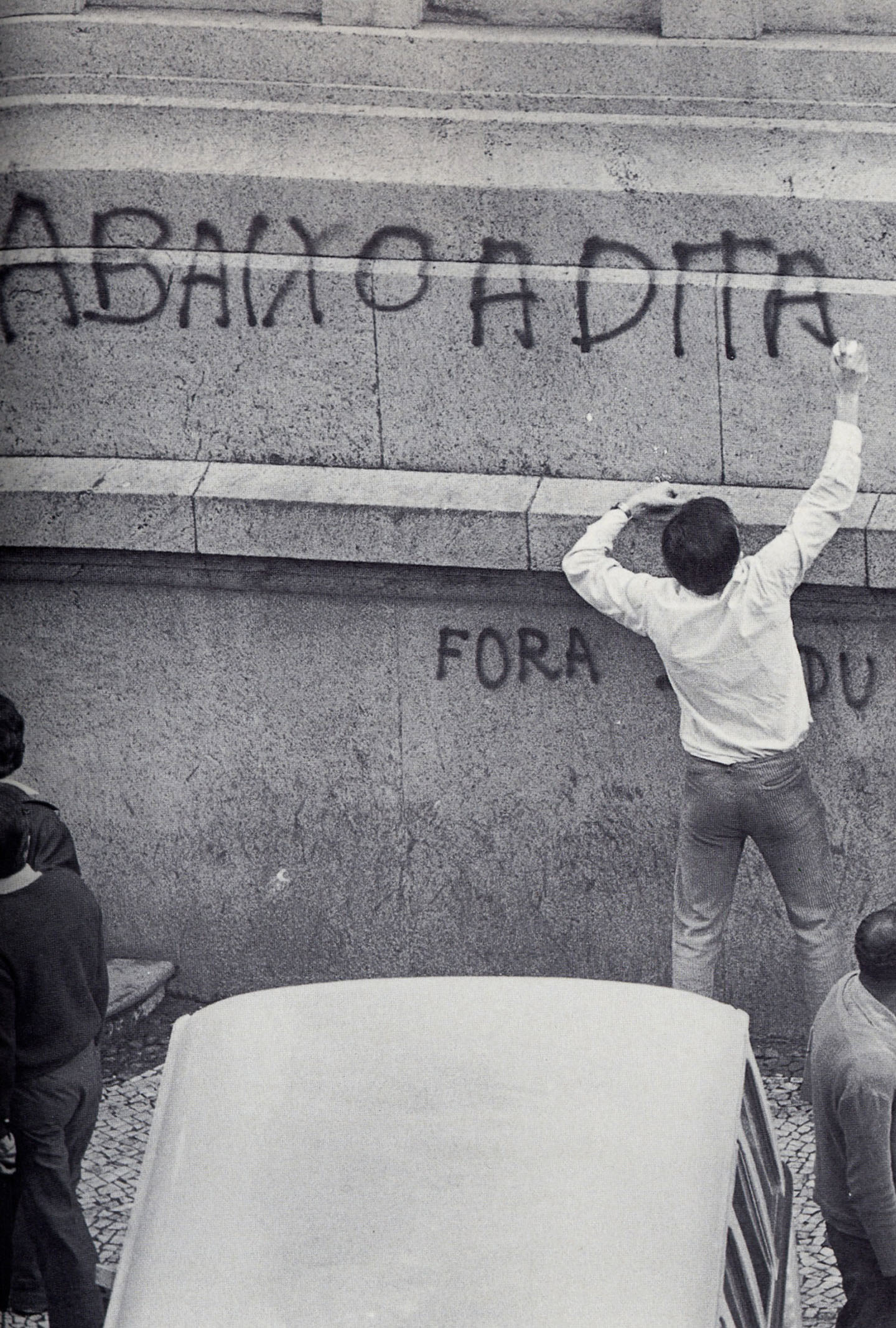PROVIDENCE, R.I. [Brown University] — On the week of the 50th anniversary of the 1964 military coup in Brazil, Brown has made public a digital archive of more than 10,000 declassified U.S. State Department documents on Brazil created around that time.
The Opening the Archives Project, led by James N. Green, professor of history and Brazilian studies, in partnership with the Universidade Estadual de Maringá, in Paraná, Brazil, has digitized and indexed documents from the U.S. National Archives and Records Administration (NARA) dated between 1963 and 1973.
Those documents are online at the Brown Digital Repository.
Green said the project was born out of his desire to "democratize" information about those tumultuous years to which many Brazilian historians and scholars didn't have easy access. A week into the archive's launch, the demand for that information is evident. More than 50,000 visitors have already been to the archive's site following an article about the project in Folha de São Paulo, one of Brazil's leading newspapers. The article also sparked the interest of a donor in Brazil who emailed Green the day of its publication with an offer of $50,000 for continuation of the project.
"That response reflects a deep interest among Brazilians to understand U.S. foreign policy to Brazil. Having this documentation accessible is an opportunity for them to do that," Green said.
The documents are also being used by Brazil's National Truth Commission to investigate human rights violations during the military regime, as well as to document ways in which the government was involved in the repression of gays and lesbians during the dictatorship.
Brazilian President Dilma Rousseff gave the project her stamp of approval on her Facebook page three days before the coup's anniversary, describing the work between Brown and the Universidade Estadual de Maringá as an “excellent partnership.”
Opening the Archives began in the summer of 2013 with 10 Brown undergraduates and two students from Brazil scanning the 10,000 documents that are currently available. Green hopes that with continued support the project will live on for the next decade and expand to include documents from several decades and archives. Plans are already in the works to begin digitizing and indexing documents from the John F. Kennedy Presidential Library in Boston in the fall and eventually from the Lyndon B. Johnson Presidential Library in Austin, Texas.
The launch of this project is taking place at a time when the University has an increased focus on Brazil. On April 10, 2014, Brown will publicly launch its Brazil Initiative. Housed at the Watson Institute, the initiative was established with two strategic goals: to make Brown the leading center for the study of Brazil in the United States and to be a hub for research collaborations between Brown faculty members and Brazilian scholars and researchers.
Green was named director of the initiative in December.
Under the Initiative, major grants have already been awarded to faculty working on STEM research projects about Brazil, as well small grants for similar projects in the humanities and social sciences, according to Green.
The initiative will also host numerous events throughout the year, including an annual Brazilian film festival, a lecture series and a yearlong theme-based seminar series that will focus this fall on the upcoming elections in Brazil.
Additionally, the initiative will host an annual conference, starting April 10 with “Brazil: From Dictatorship to Democracy.” The three-day event will bring together scholars from Brazil and the United States for seven panel discussions centered around Brazil’s various political phases over the last 50 years since the coup. In addition, Brown students and alumni will be presenting their research in a daylong event in honor of Thomas E. Skidmore, Brown professor emeritus and a leading historian of Brazil. All panel discussions are free and open to the public. More information about the conference is available online.
Brown is also partnering with academics at institutions around the world to hold four other conferences on this topic in the next year. Green spoke at a conference hosted by the University of São Paulo at the end of March, and additional conferences are scheduled for Paris, the University of Michigan, and Hebrew University in Jerusalem.

